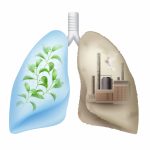By David Blyweiss, M.D., Advanced Natural Wellness
It’s not just hot, it’s sweltering! And while it can be extremely uncomfortable, especially if you need to be outdoors or don’t have air conditioning, I have much larger concerns.
The kind of scorching weather we’ve been experiencing recently can have a terrible effect on your health. Especially if you existing health conditions. We saw it last year, during the heat wave that struck the Northwest.
Last June, when most of Oregon and Washington were under an excessive heat warning, emergency room visits peaked on June 28, 2021. On that day there were 1,038 emergency room visits for heat-related illness. That compares to only nine heat-related ER visits on the same day in 2019.
That heat wave ended up being the deadliest weather-related event in Washington’s history. And, in fact, extreme weather is the leading cause of weather-related deaths in the U.S.
By far, cardiovascular events are the primary cause of deaths during a heat wave. More older adults die from cardiovascular events during heat extremes than nearly all other heat-related causes combined.
It has to do with how blood flow works when the body becomes overheated. The body redirects blood to the skin to help release body heat. So your heart has to pump faster and harder to keep up. This puts a strain on your heart.
At the same time, if you become dehydrated it decreases your blood volume. So your heart has to work even harder, increasing the burden even further. This could reduce blood flow and prevent your heart or brain from getting enough oxygen.
If you already have cardiovascular disease, this can increase your risk of a heart attack or stroke, especially if you’re an older adult.
And don’t confuse a stroke with a heatstroke. A stroke is caused by reduced oxygen flow to the brain, while a heatstroke occurs when core body temperature rises to more than 104 degrees. This can cause significant problems for the kidneys, especially if you’re also dehydrated.
Symptoms of a heatstroke typically include a racing heartbeat, rapid breathing, nausea, confusion and slurred speech… sometimes even seizures or loss of consciousness.
As with stroke, a heatstroke should be viewed as a potentially fatal medical emergency that requires a call to 911. While you are waiting for the emergency crew to arrive, cool the person down by applying ice packs to their neck, armpit and groin area. Better yet, get them in a shower or tub with cool water if you can.
How Extreme Heat Affects Your Lungs and Brain
People with respiratory conditions are also highly affected by extreme summer heat. In fact, it’s estimated that every 10-degree increase in average daily temperatures is associated with a 4.3% increase in emergency hospitalizations for respiratory diseases.
In COPD, your body uses a lot of energy just to breathe. So when all of that energy has to be rerouted to lower your body temperature, it can make breathing more difficult. And with asthma, when it’s extremely hot outside the air around you doesn’t move very much. It becomes stagnant. This can trigger a flare-up.
Higher temperatures can also mess with your mind. ER visits for mental disorders increase even with short-term exposure to extreme heat. This includes things like anxiety disorders, mood disorders, schizophrenia and dementia.
One study out of Brisbane, Australia found that hospitalizations due to Alzheimer’s increased by 51% during mid-intensity heat waves. And some research finds that the risk for dementia-associated hospitalizations is greater in regions that have wider temperature variations. So dementia patients experiencing extreme heat in the northern states may be at higher risk than those who live in the south.
Medications that Affect Body Temperature
I also want to warn you that some commonly used medications can make you more susceptible to heat-related illness. They disrupt the regulation of your body’s core temperature – something known as thermoregulation.
In particular diuretics, especially when combined with an ACE inhibitor, can contribute to dehydration and heat-related health issues. Out of all medications, this combination has the highest risk.
But other medications like anticoagulants, cardiovascular medicines, NSAIDs, antipsychotics, antidepressants and anticholinergics can all mess with your body’s ability to regulate core temperature.
So I urge you to take every precaution when it comes to extreme heat events, especially if you have any existing health conditions or are taking medications.
First and foremost, stay cool and hydrated. You can check out this article I wrote during the 2021 heat wave for all of the details.
I also recommend eating a wide variety of foods that will provide you with plenty of hydration, nutrition and energy The more of these foods you eat, the better your body will be able to cope.
SOURCES:
Schramm PJ, Vaidyanathan A, Radhakrishnan L, Gates A, Hartnett K, Breysse P. Heat-Related Emergency Department Visits During the Northwestern Heat Wave — United States, June 2021. MMWR Morb Mortal Wkly Rep. 2021;70:1020–1021.
Ebi KL, Capon A, Berry P, Broderick C, de Dear R, Havenith G, Honda Y, Kovats RS, Ma W, Malik A, Morris NB, Nybo L, Seneviratne SI, Vanos J, Jay O. Hot weather and heat extremes: health risks. Lancet. 2021 Aug 21;398(10301):698-708.
Anderson GB, Dominici F, Wang Y, McCormack MC, Bell ML, Peng RD. Heat-related emergency hospitalizations for respiratory diseases in the Medicare population. Am J Respir Crit Care Med. 2013;187(10):1098-1103.
Yoo EH, Eum Y, Roberts JE, Gao Q, Chen K. Association between extreme temperatures and emergency room visits related to mental disorders: A multi-region time-series study in New York, USA. Sci Total Environ. 2021 Oct 20;792:148246.
Xu Z, Tong S, Cheng J, Zhang Y, Wang N, Zhang Y, Hayixibayi A, Hu W. Heatwaves, hospitalizations for Alzheimer’s disease, and postdischarge deaths: A population-based cohort study. Environ Res. 2019 Nov;178:108714.
Wei Y, Wang Y, Lin CK, Yin K, Yang J, Shi L, Li L, Zanobetti A, Schwartz JD. Associations between seasonal temperature and dementia-associated hospitalizations in New England. Environ Int. 2019 May;126:228-233.
Kalisch Ellett LM, Pratt NL, Le Blanc VT, Westaway K, Roughead EE. Increased risk of hospital admission for dehydration or heat-related illness after initiation of medicines: a sequence symmetry analysis. J Clin Pharm Ther. 2016 Oct;41(5):503-7.






